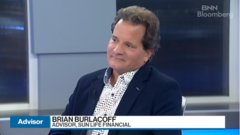Feb 19, 2019
Richard Croft's Top Picks: Feb. 19, 2019
BNN Bloomberg
Richard Croft, president and chief investment officer at R.N. Croft Financial Group
Focus: Options and ETFs
MARKET OUTLOOK
Trade and tweet wars
Most analysts think the U.S.-China trade war is the most influential dynamic affecting investor sentiment. A positive outcome should provide some mild lift to equity markets. An unexpected negative outcome would likely cause a major sell-off. The main reasons behind the dispute are intellectual property rights, trade imbalances and seeking a level playing field where government intervention is limited.
We increased odds in favour of some sort of agreement from 60-40 to 80-20. In our base case, China opts to make a short-term deal that placates the bully, giving Trump a political win in the knowledge that it could renegotiate it in two or six years. Such is the advantage of a “leader-for-life” (something President Trump has mused about when speaking to his base) when negotiating with a partner focused on four-year election cycles. And let’s face it: with a trade agreement in place, how would one stop China from simply abiding by the components that are palatable while backdooring intellectual property rights?
On the other hand, China could also refuse to go along with any deal. While this would go against China’s typical negotiation stance, there’s a school of thought that China is too far along on its 100-year strategy to be bullied by an imperialist superpower.
Central bank influence
The U.S. Federal Reserve raised interest rates in December. We think that may be the end of the rate hike cycle for the foreseeable future. Interestingly, it wasn’t the rate hike that rattled markets, but Jerome Powell’s insistence that the deleveraging of the Fed’s balance sheet (that is, allowing bonds to mature without replacing them with new purchases) was on autopilot.
Unwinding the bond purchases that were part of the three quantitative easing programs following the financial crisis is a form of tightening. Many analysts believe that the autopilot description where the Fed was unwinding US$50 billion per month is equivalent to two quarter-point rate hikes. The Fed raising rates at a time this deleveraging is taking place leads to concerns that the Fed will overstate its objective and prematurely cause a recession.
In early January, Powell acknowledged that concern at least in a way that markets seemed to understand. The markets reacted positively and rallied more than 750 points. Clearly the markets remain focused on that issue and it will play into longer-term performance.
TOP PICKS
ISHARES CHINA LARGE CAP ETF (FXI.N)
SYNTHETIC LONG: BANK OF AMERICA (BAC.N)
- Buy BAC January (2021) 30 calls: $3.60
- Sell BAC January (2021) 30 puts: $4.10
- Net per share out of pocket cost: $(0.50)
BULL PUT SPREAD: SQUARE (SQ.N)
- Sell SQ September 75 puts: $10.20
- Buy SQ September 60 puts: $4.30
- Net per share out of pocket cost: $(5.90)
| DISCLOSURE | PERSONAL | FAMILY | PORTFOLIO/FUND |
|---|---|---|---|
| FXI | N | N | N |
| BAC | Y | Y | Y |
| SQ | Y | Y | Y |
PAST PICKS: JULY 3, 2018
BMO EQUAL WEIGHTED BANK ETF (ZEB.TO)
- Then: $29.04
- Now: $28.96
- Return: -0.3%
- Total return: 2%
O‘SHARES FTSE RUSSELL 2000 SMALL CAP QUALITY DIVIDEND ETF (OUSM.N)
- Then: $27.24
- Now: $26.78
- Return: -2%
- Total return: -0.4%
FIRST TRUST DOW JONES INTERNET ETF (FDN.N)
- Then: $138.16
- Now: $137.13
- Return: -1%
- Total return: -1%
Total return average: 0.3%
| DISCLOSURE | PERSONAL | FAMILY | PORTFOLIO/FUND |
|---|---|---|---|
| ZEB | N | N | N |
| OUSM | N | N | Y |
| FDN | N | N | Y |
WEBSITE: croftgroup.com
TWITTER: @croftgroup












